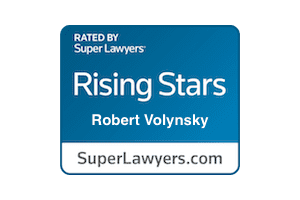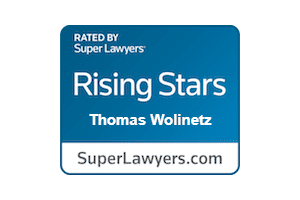



Have you been sold securities that your broker asked you to “keep quiet” because it may “get them in trouble”? You may have been sold securities in violation of selling away regulations. Selling away involves unregulated private security transactions. When such a transaction is made, it means that you may have been sold securities that are not ordinarily offered by your brokerage firm These transactions deprive you of the protection afforded you under securities laws. Apart from this, they may even be fraudulent.
Selling away is a dangerous practice that may leave your investment exposed to severe risk. Even worse, it may result in the partial or entire loss of your investment. This is why there are strict regulations that prohibit sales of such securities.
If you have been sold securities in violation of selling away regulations and suffered loss due to this, you may be entitled to compensation. Get in touch with us by calling (877) 905-7671 for a full explanation of your rights in relation to selling away and private security transactions.
Selling away occurs when a broker solicits an investor to buy securities that are not offered or approved by their brokerage firm. Securities usually involved in these transactions include promissory notes. They may also include private placements and collateralized loan obligations.
As a rule, selling away transactions involve securities that the firm does not ordinarily trade in. As such, the transaction is usually unapproved and unprotected. These transactions may even involve products that the firm has prohibited its brokers from selling. They are usually meant to allow the broker to enjoy a commission from unapproved business.
The danger with selling away transactions is they deprive investors of the protection afforded by the laws. Trade in securities is regulated by the Financial Industry Regulatory Authority (FINRA). It oversees all stock market operations, brokerage firms and securities representatives. It also provides rules that govern ethics in securities trading and guidance for complying with the regulations.
The purpose of these rules is to reduce the risk and possible exposure of investor clients. Importantly, the rules also specify who can deal in what securities. Ordinarily, brokers can only deal in those securities that they are qualified to trade. Selling away transactions try to skirt these regulations.
Investing is risky on its own. But when it is done without having to follow rules, it becomes dangerous for investors. Often, it goes hand in hand with fraud. Many investors have suffered serious loss due to selling away violations. In one high profile case, investors were fraudulent promissory notes. The investment turned out to be a Ponzi scheme. The case led to expulsion of the firm and a fine of more than $13 million.
FINRA regulations specifically prohibit selling away and private security transactions. The key rules that pertain to selling away include FINRA Rules 3280, 3270, 3110 and 3130:
Rule 3270 obligates brokers or financial advisors to disclose in writing, any outside business they are involved in. Outside business here covers any business activity as a broker, that is outside the scope of their normal employment. It could refer to securities or investment types that they are not qualified to trade in. Thus, brokers cannot carry out any outside business. They can only do this with prior written notice from the firm.
Rule 3280 prohibits brokers from participating in private security transactions without written notice. They must provide this notice. It does not matter whether they will be entitled to compensation on the transaction or not. If the broker does not have written transaction, they will be liable for violating the rule.
Rule 3110 requires brokerage firms to establish, maintain and enforce a supervisory system. They must watch their brokers carefully to ensure that they cannot take part in selling away without approval. Rule 3130 requires all brokerage firms to annually examine and certify their supervisory systems. These systems must be certified as “reasonably designed”. The purpose is to continually track the capacity of the firm to adequately supervise its brokers.
Brokers and brokerage firms that violate these rules may be subject to serious sanctions. These may include fines, suspension or even expulsion. If you have been sold securities in violation of selling away regulations, you may also be able to claim damages in a FINRA arbitration.
Brokerage firms may also be responsible for failure to supervise their representatives. FINRA arbitration panels may consider some of these instances in determining responsibility:
Unfortunately, it is not in all instances that you would be able to hold a brokerage firm liable. The duty on firms does not mandate them to prevent the occurrence of violations at all costs. Despite this, they have a positive duty to take all reasonable steps to prevent an occurrence.
Fill out the form below or call 877-905-7671 to schedule your free consultation
By Appointment Only
5 N Village Ave 2nd Floor
Rockville Centre, NY 11570
By Appointment Only
9171 Wilshire Blvd #500
Beverly Hills, CA 90210
Attorney Advertising | Prior results do not guarantee a similar outcome. The information on this website is for general information purposes only. Nothing on this site should be taken as legal advice for any individual case or situation. This information is not intended to create, and receipt or viewing does not constitute, an attorney-client relationship. This site is protected by reCAPTCHA and the Google Privacy Policy and Terms of Service apply.